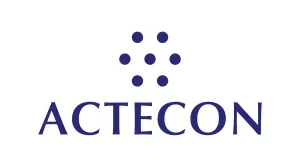Introduction
The Turkish Competition Authority ("TCA"), in the framework of its market evaluation, includes every factor which could potentially influence the market structure. As trade remedy measures have a direct impact on imports and exports and thus on domestic supply and demand, the TCA, in some of its decisions, considers the Turkish Ministry of Economy's ("Ministry") measures taken to protect Turkey's competitiveness in the context of international trade.
Besides a short theoretical explanation of the interaction between competition law and trade remedies, below the TCA's decisions related thereto will be briefly dealt with.
1. The Interaction between Competition Rules and Trade Remedies
It is generally considered that the scopes of competition rules and trade remedies are overlapping. Indeed, both affect market conditions and companies' activities. Nevertheless, as competition rules are implemented by the TCA and trade remedies by the Ministry, both constitute two separate areas having different legal aspects and require different expertise.
The Ministry, in accordance with the World Trade Organization's rules in this regard, takes its decisions on a country and product basis. In this context, the Ministry mainly takes either anti-dumping measures (i.e. as a result of an original dumping investigation), or safeguard measures (i.e. measures implemented irrespective of a dumping investigation). With the entry into force of those measures protecting domestic producers, importing companies have to adjust their activities on the market.
In a scenario in which anti-dumping measures have a duration of five years, interim review investigations (for which producers/exporters located in the country subject to the measure can apply after a period of one year following the adoption of the said measure) and expiry review investigations (for which domestic producers can apply within the year before the expiry of the measure) have an important effect on the configuration of the market. Indeed, imports and exports shape the market structure and are dependent on the implementation of trade remedies. In this context, companies try to have an influence on the market structure by applying for the aforementioned review processes.
Although the TCA takes its decisions on an undertaking basis, some of them may seriously affect the whole of a sector in case the decision contains sector-specific evaluations. Beyond investigation decisions, the TCA's decisions regarding preliminary inquiries, negative clearances, exemptions, and sector inquiries have a considerable influence on the market as well.
As the definition of the relevant product market and the determination of the market structure are of great importance in the TCA's decisions and as the Ministry's decisions considerably affect markets, it is considered that the TCA may take into account the Ministry's measures in the framework of its evaluations.
It thus appears from the TCA's case-law that the Ministry's measures are taken into account in the frame of preliminary inquiries, investigations, exemption decisions, and the implementation of the merger control regime.
2. The TCA's Decisions Considering Trade Remedies in the Framework of its Competition Analysis
The TCA, in its Trakya Cam Decision1, pointed out that trade remedies could be identified as a relevant factor to be taken into account in the authority's market evaluation. In the Ministry's communiqués considered by the decision at hand, various trade remedies have been imposed on the imports (i) of flat glass from Iran spanning over three years (respectively USD 60/ton, USD 55/ton, and USD 50/ton), (ii) of safety glass from China (63,7% CIF) and Israel (53,2% CIF), and (iii) of clean float glass from Israel (37,57% CIF) and Romania (25% CIF). In effect, such measures have been deemed to have been established in order to diminish the competitive pressure exerted by imports on the domestic market.
Nevertheless, it follows from the analysis of imports' market share that despite the measures imposed by the Ministry, the market share of the imports of flat glass has continued to increase over the years. It has been determined that energy costs make up the largest cost component of flat glass production and that one of the reasons for the increase of imports' market share is the low level of energy costs in other countries compared to Turkey. Hence, notwithstanding the variety of measures taken by the Ministry, imports of flat glass continued to grow.
The TCA also included such trade remedies in its market evaluation in other decisions.
To this regard, the TCA, in its decision2 clearing the acquisition of 51% of Sasa Polyester Sanayi A.Ş.'s ("Sasa Polyester") shares by Indorama Netherlands B.V. ("Indorama"), made a detailed review of the Ministry's measures. After having defined the affected market as being the market of staple fibers of polyester, the TCA determined that safeguard measures are being implemented to protect the domestic producers and that Indorama is located in a country subject to the said measures. The TCA noted that this situation led to a lower market share for Indorama and to a higher one for Sasa Polyester, unlike what would be the case under normal market conditions. On the other hand, the TCA pointed out that beyond the imposition of safeguard measures, other factors such as the absence of customs formalities, shorter delivery time than imported products, or the non-necessity to keep stock, also explain Sasa Polyester's higher market share.
Another decision in which the TCA reviewed safeguard measures is the decision3 by which it had to deal with the privatization of Tuzla salt plant's assets. The TCA noted regarding imports' market share that while increasing before the adoption of the Ministry's safeguard measures, the concerned share started to decrease with the entry into force of the said measures. The TCA, as a result, drew the conclusion that almost all of the demand was being met domestically and that this led to an increase of domestic producers' market share.
Eventually, in another decision4 in which imports' effects on the market have been taken into account and by which the TCA ruled not to grant neither a block exemption nor an individual exemption to the exclusive dealership agreement that was to be entered into between Sağlam Satış ve Pazarlama A.Ş. and Swedish Match Kibrit ve Çakmak Endüstri A.Ş., the TCA held that the competitive pressure exerted by imports declined to a negligible level after the imposition of two types of safeguard measures in 2009 (i.e. additional customs duties and fixed duties imposed on the basis of unit value).
3. The TCA's Decisions Considering Companies' Cooperation in the Framework of Trade Remedy Applications
In another decision5 which led the Association of Manufacturers of Friction Materials ("AMFM") being fined for exerting pressure to prevent non-member undertakings' products from being resold, the TCA had to consider, among others, whether brake callipers manufacturers' behaviours through the aforementioned association of undertakings created competition concerns. In effect, brake callipers' manufacturers have gathered in order to jointly apply before the Ministry for trade remedies. The TCA ruled that although it could be considered that the concerned manufacturers have intended to drive a competitor out of the market, it is deemed reasonable for those manufacturers to act together to ensure the exercise of a legal right. To conclude, the TCA decided that the AMFM's attempts to prevent the importation through the adoption trade remedies did not violate competition rules.
Eventually, in a decision6 in which a negative clearance has been granted to a "cooperation protocol" ("Protocol") entered into between three competing companies active in the market of grooved pipe fittings, the TCA established that the Protocol does not violate competition rules on the grounds (i) that its purpose is to ensure cooperation and coordination of the concerned companies' actions before the Ministry aimed at solving the problems created by the imposition of additional customs duties on the imports of the concerned product and (ii) that the concerned companies pledged in the Protocol not to exchange any piece of information containing strategic information or trade secrets.
Conclusion
Based on the foregoing analysis, the conclusion could be drawn that the Ministry's trade remedies do affect the markets and that information exchanges between competitors regarding the Ministry's measures will likely be on the TCA's agenda in the future. In effect, such measures imposed on the imports of specific products from specific countries have a potentially significant impact on the domestic market and may lead to the taking of business decisions aimed at preventing the entry of foreign companies into the Turkish market.
Footnotes
1. The TCA's decision dated 21..12.2017 and numbered 17-42/670-298.
2. The TCA's decision dated 08.01.2015 and numbered 15-02/24-10.
3. The TCA's decision dated 25.02.2010 and numbered 10-19/236-91.
4. The TCA's decision dated 25.04.2012 and numbered 12-22 / 569-164.
5. The TCA's decision dated 04.10.2005 and numbered 05-64/925-248.
6. The TCA's decision dated 11.12.2014 and numbered 14-50/880-400.
The content of this article is intended to provide a general guide to the subject matter. Specialist advice should be sought about your specific circumstances.


